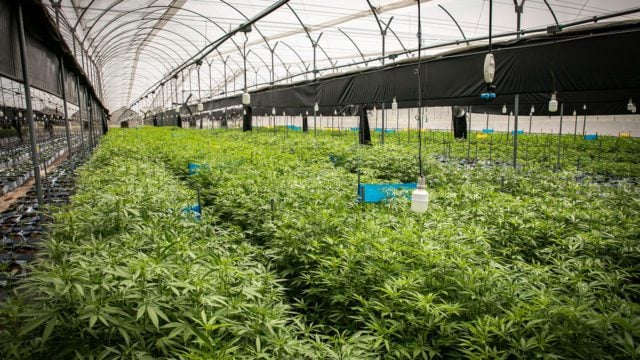In a groundbreaking move, Mexico is on track to become the largest cannabis market in the world. The country’s evolving stance on cannabis legalization is creating a ripple effect, not just within Latin America, but across the globe. In the coming years, Mexico’s cannabis market is set to surpass even the largest cannabis markets in the United States, making it a prime destination for industry players, entrepreneurs, and investors. https://finanzasdomesticas.com/mexico-tendra-el-mercado-mas-grande-de-cannabis
This shift is not just about cannabis cultivation or sales—it is about changing the socio-political landscape, influencing international trade, and shaping the future of the cannabis industry. As Mexico moves towards cannabis legalization, both for medical and recreational use, the country is poised to become a major player in the global market, with profound implications for the economy, public health, and social justice.
In this article, we’ll explore the factors driving Mexico’s cannabis boom, the potential benefits and challenges of this shift, and how the country plans to establish itself as the world’s largest cannabis market.
Table of Contents
Toggle1. The Road to Legalization: Mexico’s Journey Towards Cannabis Reform
Mexico’s journey towards cannabis legalization has been a long and complex process. The country first took steps towards cannabis decriminalization in the early 2000s, with significant progress being made over the past decade. In 2017, Mexico took a landmark step by legalizing medical cannabis, allowing patients with certain conditions to access cannabis-based treatments. However, the broader push for full cannabis legalization remained a contentious issue, with political, social, and legal debates dominating public discourse.
In 2021, Mexico’s Supreme Court ruled that the prohibition of recreational cannabis was unconstitutional, calling for legislative changes to allow for its regulated use. This decision marked a significant turning point, with momentum building in Congress to push for the full legalization of cannabis.
The legal framework for cannabis in Mexico is still being developed, but the country’s commitment to this transformation is clear. Legislative bodies are now working on creating a robust regulatory system to govern cannabis cultivation, distribution, and consumption. Mexico’s government envisions a market that will not only serve its domestic population but also cater to international demand, positioning the country as a global cannabis powerhouse.
2. A Massive Market Opportunity: The Size and Potential of Mexico’s Cannabis Industry
Mexico’s cannabis market is set to become the largest in the world, with projections estimating a market value of over $10 billion annually once fully legalized. This market size is expected to dwarf even the largest existing markets, such as California and Canada, due to Mexico’s population size and strategic location.
With over 126 million people, Mexico is the most populous Spanish-speaking country in the world. The country’s young demographic, combined with a growing acceptance of cannabis use, creates a massive consumer base. Additionally, Mexico’s proximity to the United States—where cannabis use is becoming increasingly legalized at the state level—gives it a unique position to become a key supplier to the American market.
Mexico is also expected to be a leader in cannabis cultivation due to its favorable climate, agricultural expertise, and abundant land. The country’s agricultural sector has long been one of its strongest economic drivers, and cannabis will likely become a major cash crop. The development of large-scale cultivation operations, coupled with the establishment of world-class processing facilities, will allow Mexico to export cannabis products globally.
For investors, this presents a huge opportunity. Early movers in Mexico’s cannabis market stand to benefit from the country’s emerging legal framework and the ability to tap into both domestic and international markets. From cultivation to retail, from edibles to wellness products, the range of opportunities within the cannabis sector is vast.
3. Economic Benefits: Boosting Mexico’s Economy and Job Creation
One of the most significant advantages of cannabis legalization in Mexico is the potential economic boost it will bring. As the world’s largest cannabis market, Mexico stands to create thousands of jobs across multiple sectors, including agriculture, manufacturing, retail, and research. Cannabis cultivation alone could employ hundreds of thousands of people, from farmers to technicians to distribution specialists.
Moreover, the cannabis industry could become a major contributor to Mexico’s GDP. Taxes on cannabis sales, along with the creation of export opportunities, will generate substantial revenue for the government. This revenue could be reinvested in critical sectors such as healthcare, education, and infrastructure, contributing to the country’s overall economic development.
Mexico’s cannabis market also presents opportunities for small businesses and local entrepreneurs. By establishing a well-regulated market, Mexico can create a thriving cannabis ecosystem that supports local production, distribution, and consumption. This decentralization of the cannabis industry could empower local farmers and business owners, allowing them to tap into this rapidly growing market.
4. Public Health and Social Justice: The Dual Impact of Cannabis Legalization
While the economic potential of cannabis legalization in Mexico is clear, the public health and social justice implications are equally significant. The legalization of cannabis offers Mexico an opportunity to address long-standing issues related to the criminalization of drug use and the overburdening of the criminal justice system.
For years, Mexico has grappled with the consequences of its war on drugs, which has disproportionately affected marginalized communities. Legalizing cannabis could reduce the number of people incarcerated for nonviolent drug offenses, freeing up resources in the justice system for more pressing matters. It could also reduce the influence of cartels involved in the illicit drug trade, thereby improving public safety.
Cannabis legalization also presents an opportunity to create a regulated market that prioritizes public health. Mexico’s government has already committed to ensuring that cannabis products are subject to rigorous safety standards, with a focus on quality control and responsible consumption. This approach will help prevent the black market from continuing to thrive and ensure that consumers have access to safe, tested products.
Furthermore, Mexico’s cannabis market could address health issues through the expansion of medical cannabis access. Patients with conditions such as chronic pain, epilepsy, and anxiety could benefit from safe, regulated access to cannabis-based treatments. As research into the medical benefits of cannabis continues to grow, Mexico could become a hub for cannabis-related healthcare innovation.
5. International Implications: How Mexico Will Shape the Global Cannabis Landscape
As the largest cannabis market in the world, Mexico’s influence will extend beyond its borders. The country is well-positioned to become a key player in the global cannabis supply chain. Its proximity to the United States, one of the largest cannabis markets in the world, makes it an attractive source for cannabis exports.
In addition, Mexico’s efforts to establish a regulated and transparent cannabis market could set a precedent for other countries in Latin America and around the world. With global attitudes toward cannabis shifting, Mexico’s leadership could inspire other nations to follow suit, accelerating the worldwide trend of cannabis legalization.
Mexico’s rise as a cannabis powerhouse could also impact global research and development in the cannabis space. With its emphasis on regulation and quality control, Mexico may become a leading center for cannabis-related scientific research. This could lead to innovations in cannabis cultivation, production techniques, and medicinal uses, benefiting both Mexico and the global market.
6. Challenges Ahead: Regulatory Hurdles and Social Opposition
Despite the clear potential of Mexico’s cannabis market, the path to full legalization will not be without challenges. While cannabis reform enjoys broad public support, there are still many regulatory hurdles to overcome. Lawmakers must finalize the legal framework for cannabis cultivation, distribution, and consumption, which requires navigating complex issues around taxation, public health, and international trade.
Additionally, social opposition to cannabis legalization remains. Some segments of Mexican society continue to view cannabis with suspicion, citing concerns about public health and safety. Overcoming these concerns will require ongoing education, public outreach, and transparent regulation to ensure that legalization proceeds smoothly.
Conclusion: Mexico’s Cannabis Future
Mexico’s ambition to become the world’s largest cannabis market is more than just a pipe dream—it’s a vision that’s rapidly becoming reality. As the country navigates the complexities of legalization, it is poised to create a thriving industry that generates economic opportunities, fosters innovation, and contributes to the well-being of its citizens.
With the right regulatory framework and a commitment to social justice and public health, Mexico’s cannabis market could set a new global standard, reshaping the way we think about cannabis use, commerce, and policy. As the cannabis industry continues to grow and evolve, all eyes will be on Mexico as it prepares to lead the charge in this exciting new era.
Related Posts
-
https://finanzasdomesticas.com/china-prohibe-las-criptomonedas
Finanzas Domésticas is a Spanish-language platform focused on providing practical advice on personal finance, saving…
-
https://finanzasdomesticas.com/china-prohibe-las-criptomonedas/
1. Introduction Domestic finances, often referred to as personal or household finances, encompass the management…
-
https://finanzasdomesticas.com/el-pib-de-alemania/
Germany, as the largest economy in Europe and the fourth largest in the world, holds…
-
https://finanzasdomesticas.com/el-precio-del-bitcoin
Bitcoin, the first and most well-known cryptocurrency, has taken the financial world by storm since…
-
https://finanzasdomesticas.com/economia-de-india-afectada/
India, one of the fastest-growing economies in the world, has been facing a range of…
-
https://quesonlosvaloreseticos.com/diferencia-entre-etica-y-valores/
1. Introduction In everyday life, the terms "ethics" and "values" are often used interchangeably, but…










